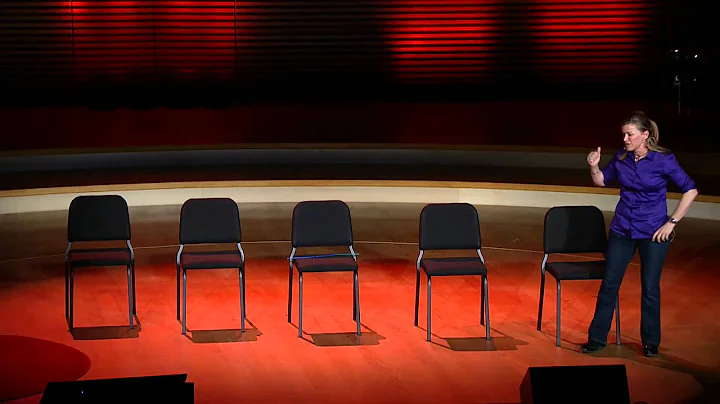Aristotle said: "People are shaped by habits, and excellent results come from good habits, not temporary actions."
Good habits can achieve an extraordinary life.
Good habits refer to long-term persistence in doing things that are beneficial to oneself, others and society. However, not everyone can achieve this word "persistence".
In the book "Persistence, a Habit that Can Be Developed", it is mentioned that cultivating good habits is divided into three stages: resistance period, instability period and burnout period.
The following summarizes 8 methods that can treat the "discomfort" symptoms that may occur during these three stages and help you fundamentally develop more good habits.

Resistance stage
This stage may include: three-minute heat, resistance, and wanting to give up immediately.
The main reason is that the execution difficulty exceeds the ability. The solution is to lower the difficulty to a point where anyone can do it easily.
Specific methods:
01
Cultivate one habit at a time
"Being too greedy" is the primary reason for failure. Many people want to cultivate two or more habits at the same time. For example, if a person wants to lose weight, he may start from two aspects: diet and exercise.
This is correct, but cultivating multiple habits at the same time from the beginning is equivalent to enduring multiple pressures. Unless the person has extraordinary willpower, it will only increase the probability of giving up because it is too hard.
We can challenge one habit first, and then challenge the next one after the habit is stable or the set goal is achieved.
02
Make new habits "easy to see and do"
The author of "Little Habits" once mentioned: "People who cannot form habits have one thing in common, that is, they do not realize the importance of the 'previous habit'."
You must know that habits also have a "chain reaction". In other words, the previous habit is a "cue" that guides us to do the next step to develop a new habit.
For example, if you want to develop the habit of reading before going to bed every day, you must first get used to putting a book on your bedside table every day.
In daily life, we can use an "action or thing that is repeated many times every day" as a reminder to trigger new habits.
For example, if you want to cultivate the habit of smiling, then every time you tidy up your appearance in the mirror, remind yourself to smile.
At this stage of the resistance period, the most important thing for us is to make the "prompt" appear in a more conspicuous place. When we see it, we will do the following things easily.
And at the beginning, the simpler the new habit, the better. As long as it is simple and easy to do, effortless, and only if our subconscious mind does not resist, the new habit can last longer.
03
Increase the attractiveness of new habits
Cultivate a good habit. We will not see the effect at first, and it will also make people uncomfortable. So can we increase the initial appeal of good habits?
The author of "Mastering Habits" proposed a method of "preference binding" and gave an example:
An electrical engineering student likes to watch a certain TV program very much. In order to cultivate the habit of exercise, he specially wrote a program on the electric bicycle at home.
Every time he pedals the bicycle at a very slow speed and at a constant speed, the bicycle will automatically connect to the TV and open his favorite program.
Even if we don’t like this new habit at first, as long as we take small actions and enjoy the things we are looking forward to later, we will be happy to stick to it.

Unstable period
At this stage, we have been able to slowly adapt to the discomfort that occurred at the beginning, but due to instability, people are easily affected.So at this time we need to stay away from bad habits and environments, and find habit patterns that are more suitable for ourselves.
04
Make bad habits "difficult to implement"
Sometimes we cannot develop good habits because bad habits invisibly hinder the development of good habits. As long as bad habits are suppressed or the difficulty of implementing bad habits is increased, good habits can be gradually developed. .
Just like procrastination, when we increase the difficulty of procrastination and make it difficult to continue, the efficiency of our work will also increase.
When Hugo wrote "Les Misérables", he took off all his clothes, locked himself in the room, and asked the servants to take away the clothes at home.
In this way, he could not go out and forced himself to write. In the end, he followed the agreement with the publisher and completed the masterpiece "Les Misérables" within the specified time.
In life, we can also use external forces, such as supervision and reward and punishment mechanisms, to increase the difficulty of implementing bad habits.
05
Stay close to "successful people" and stay away from "bad environments"
"Encouraging Learning" says: "In the midst of hemp, one cannot stand straight without support; in the midst of white sand, it becomes black."
People are the product of the environment. The people and environment around you will have a great impact on a person.
If we want to cultivate good habits, we should approach people who already have these good habits, or find like-minded partners.
At the same time, we must stay away from environments that will destroy the implementation of good habits and reduce the erosion of our will by unfavorable factors.
06
Track habits and find more suitable patterns
Good habits may not bring us gains in the short term, but we can also "artificially" record results and track habits, and let "visible" progress give us a steady stream of motivation.
Fan Deng, the founder of Fan Deng Reading , in the past, in order to cultivate the habit of "reading a book a week", he would post a post on Moments after each book he read: the 28th book in 2019, the 28th book in 2019 29 books...
Watching this number continue to increase, he will be particularly proud because he has read another book. Sometimes in order to keep reading, he will read some simple books to make up the number.
But soon after, he found that reading simple books could not satisfy his reading needs, so he revised his reading mode and read books that suited his taste and ability.
Therefore, reviewing habit records can also help us improve and find more suitable habit patterns. When habit patterns become more and more consistent with our own personality and preferences, we can find more fun in them.

Burnout period
Day after day habits can easily make people slack off. Therefore, in the final "burnout period", you may feel a sense of emptiness and lack of motivation and meaning.
At this time, we can deal with it like this:
07
Flexible cultivation and adding changes
Plans can help us develop habits in a certain order, but in reality, "emergency situations" often occur that interrupt our plans and actions.
If we are not able to execute the plan and create a psychological burden, it will only increase our frustration in the long run, and then we will be unable to persist, and of course it will easily lead to failure in the end.
We can set "exceptional rules" in advance, combine "exceptional rules" with "plans" and use them flexibly to cultivate habits flexibly.
For example, if you want to develop the habit of learning English and plan to take English courses online for one hour every day, but occasionally you feel down one day, it doesn't matter if you listen to English songs for twenty minutes.
Even if there is no "emergency situation", sometimes we can also put some thought into changing the form, time, content or environment of habit execution:
When you are alone, you can read English novels; when you are in the car, you can listen to English news; when you are tired, You can watch English movies...
makes monotonous and repetitive habit patterns rich and colorful, and will also help us increase our enthusiasm for executing habits.
08
Remember the original intention and look for meaning
Ji Yuan, the author of "There is no such thing as time", said in the book: "Smart persisters work hard to discover what they want during the exploration and trial period, and will never Hanged from a tree."
He had a friend who, after running for more than two months, turned to swimming. Not long after, she gave up swimming again and started doing aerobics in her residence. Now she not only Dance aerobics, and also add strength training items.
She seems to be unable to do anything for a long time, but in fact, she always insists on "doing exercise".
She always keeps in mind the original intention of "exercising for physical and mental health", so she does not blindly insist on a certain behavior, but keeps changing the way she exercises to avoid feeling disgusted with exercise.
When we clearly understand the purpose of cultivating habits and find the meaning of persistence, we can better cure the boredom caused by unchanging habits, successfully survive the burnout period, and successfully integrate habits into our lives.

I have heard a saying: "Life is just the sum of countless habits. Once you have a sense of control over your life, a series of positive changes will happen."
Every tiny habit has the potential to change your life.
I hope you can learn to control your own life, control your own habits, and under the leadership of good habits, continue to grow and make breakthroughs, creating unlimited possibilities in life!
About the author: Pianpian Feihong is a woman who just wants to swim in reading and writing.





















